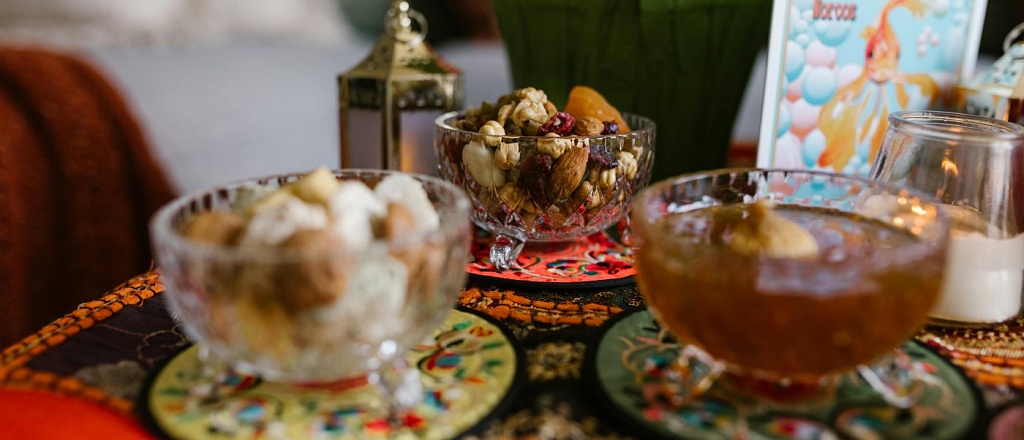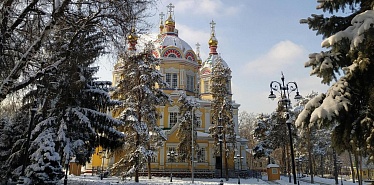Kazakhstan, the largest landlocked country in the world, is a treasure trove of cultural traditions shaped by its nomadic past and diverse ethnic heritage. Here’s an insightful look at some of the most interesting and meaningful traditions that any foreigner visiting or living in Kazakhstan should know.
Konakasy — Hospitality
Hospitality is the heart of Kazakh culture. The tradition of konakasy ensures that guests, whether expected or not, are treated with utmost respect and generosity. Meals are served with care, often beginning with tea and traditional snacks. Guests are considered a blessing, and hosting them well reflects the family’s honor.
Betashar Ceremony
A highlight of Kazakh weddings, betashar involves unveiling the bride’s face, symbolizing her transition into her new family. Traditionally accompanied by an improvised song performed by a mullah, the ceremony introduces the bride to her in-laws, to whom she bows in respect. This ritual underscores the importance of family in Kazakh society.
Tusau Kesu
The tusau kesu celebrates a child’s first steps. The child’s legs are loosely tied with a black-and-white string, representing the balance of good and bad in life. A relative or close family friend cuts the string, wishing the child health and success in their journey through life.
Shashu Tradition
During celebrations such as weddings or significant life milestones, shashu involves showering participants with sweets and coins. It’s believed that collecting and consuming these scattered items brings good fortune and happiness.
Bata — Blessing
Bata is a heartfelt blessing traditionally given by elders. Whether at weddings, family gatherings, or before embarking on a journey, the poetic words of a bata are seen as a source of wisdom, guidance, and good luck.
Nauryz
Nauryz is one of Kazakhstan’s most celebrated traditions, marking the arrival of spring on March 22. Families prepare traditional dishes like nauryz kozhe, a hearty soup made from seven ingredients symbolizing prosperity and health. The festival includes public celebrations, traditional games like kyz kuu — a horse-riding game, and performances of folk music and dance.
Yurt Culture
While Kazakhs no longer live in yurts on a daily basis, these traditional nomadic homes hold deep cultural significance. Today, yurts are primarily used during festivals and celebrations, such as weddings or Nauryz. They serve as symbols of Kazakhstan's nomadic heritage and are set up in rural or remote areas to host traditional events.
Toi
The word toi means celebration and refers to a variety of gatherings, from weddings to baby showers and even birthdays. Kazakh toi are known for their lavish feasts, featuring an abundance of traditional dishes, music, and dancing. Participating in a toi offers a glimpse into the festive spirit of Kazakh life.
Kuy and Dombra
Music is an integral part of Kazakh traditions, with the dombra — a two-stringed lute being the most iconic instrument. The kuy is a type of musical storytelling performed on the dombra, often evoking powerful emotions and narratives from history and folklore.
Respect for Elders
In Kazakh culture, elders are deeply respected. Younger generations often seek their advice, give up seats for them, and offer them the first choice of food at meals. This tradition reflects the value placed on wisdom and familial bonds.
Traditional Kazakh Cuisine
Kazakh cuisine is rich and hearty, reflecting its nomadic roots. Signature dishes like besbarmak — boiled meat served with noodles — are enjoyed communally. Kumys, fermented mare’s milk, is a traditional drink that showcases the resourcefulness of Kazakh nomads. Guests are often treated to a feast of various delicacies as a sign of respect and hospitality.
Kazakh Games
Traditional Kazakh games offer insight into the nation’s rich heritage. Sports like kokpar — a type of polo played with a goat carcass and asyk atu — a game using sheep bones are not only competitive but also serve as ways to bring communities together during festivities.











